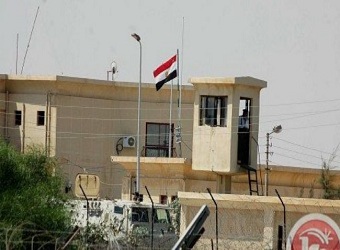Egypt’s army has announced a full-scale assault on militant areas in the restive northern Sinai desert, in what a senior Israeli official has approvingly called Egypt’s first-ever serious counter-terrorism campaign in the region.
Since July, militant Islamist groups in Sinai, the peninsular sandwiched between Egypt and Israel, have killed dozens of police and army officers in an insurgency sparked by anger at ex-president Mohamed Morsi’s July overthrow. A Sinai-based cell also claimed responsibility for last week’s failed assassination attempt on Egypt’s interior minister, and the unrest has been used to justify a brutal state-led crackdown on more moderate and largely peaceful Morsi supporters in Cairo.
On Saturday, Egypt’s army said it killed 30 militants in an assault on 12 villages. Locals said the strikes involved six military helicopters and 50 soldiers going from house to house.
Egypt’s military has often claimed to have mounted serious assaults on Sinai insurgents, with the reports hard to verify. But observers argued that this latest campaign, which began on Saturday, may be the largest in years.
“For the first time, we see a determined struggle against terrorism in Egypt’s Sinai, unrelated to the interests of Israel,” said Amos Gilad, a senior official in Israel’s defence ministry, in a speech at a thinktank. “The operation of the Egyptians is impressive.”
Issandr el-Amrani, a Cairo-based analyst, and North Africa project director at the International Crisis Group, said: “It does appear to be a full-on offensive and there are high levels of confidence among Egyptian officials. They appear willing to pay the price of a full-on assault, having been reticent to go all the way before.”
There are fears the assault may stoke terrorism, rather than stamp it out, in a region that has long felt abandoned by Cairo. Residents have recently criticised the collateral damage that army assaults have caused among the innocent civilian population. Sinai-based reporter Ahmed Abu Deraa has been detained by the military for criticising the army’s tactics in the area. There is also regional anger at the state-sponsored destruction of smugglers’ tunnels under the border between Sinai and Gaza that are an important source of local income.
The unrest has been used to justify the temporary closure of the 1,500-year-old St Catherine’s monastery, one of the oldest monasteries in the world, which is situated in the south of the peninsular.
Source: The Guardian
